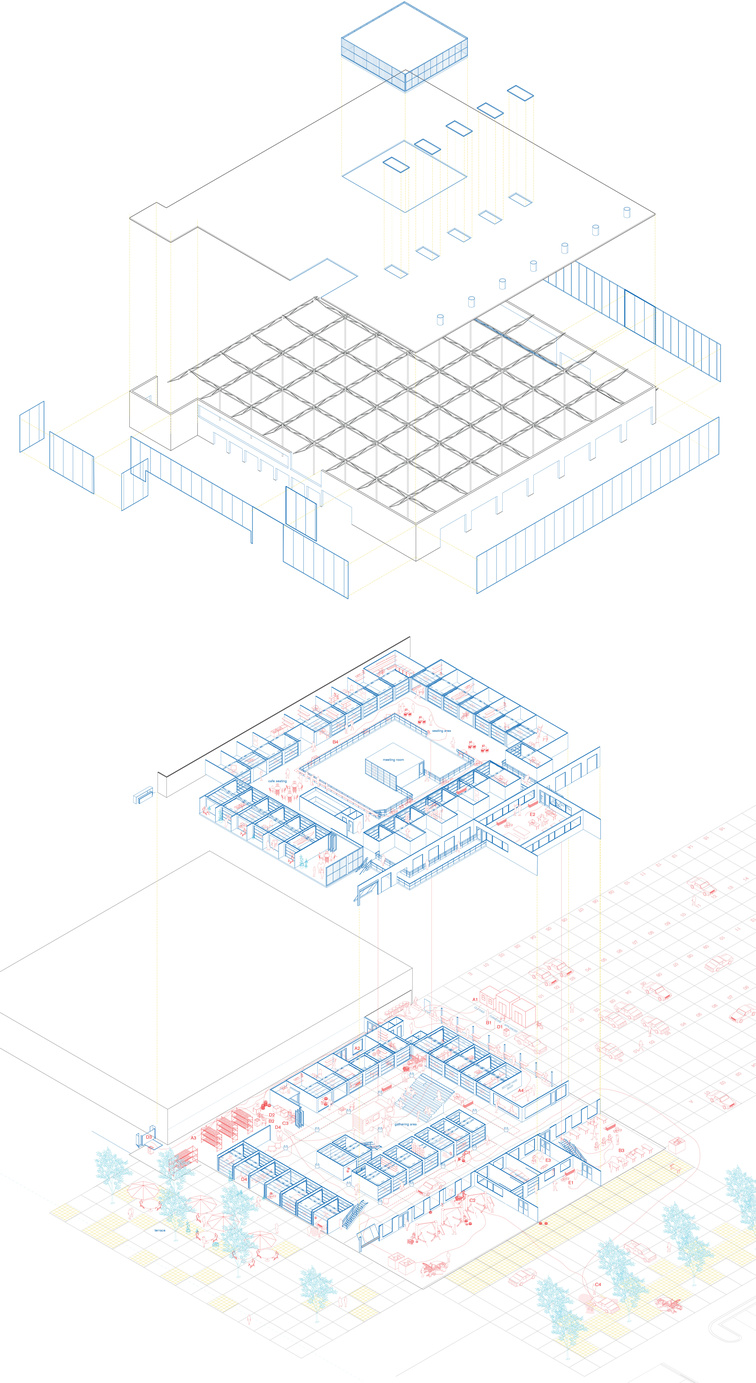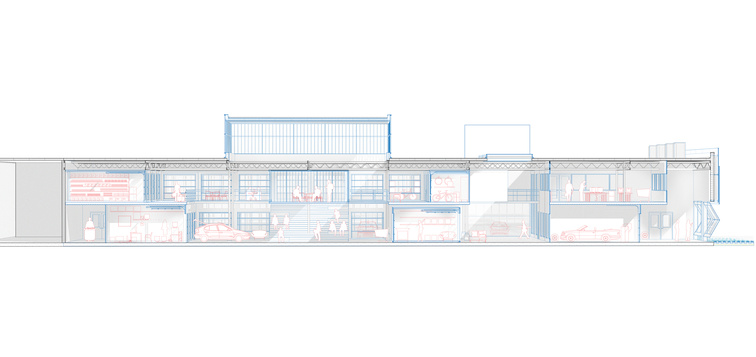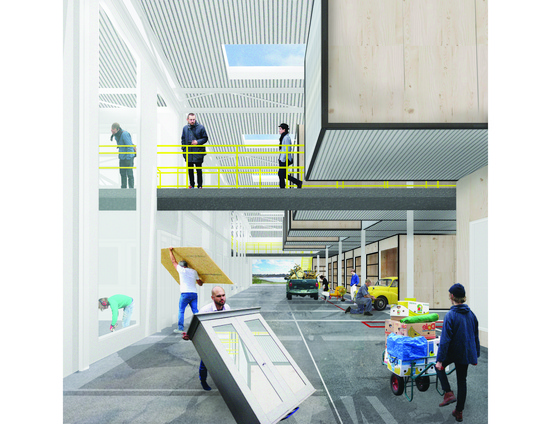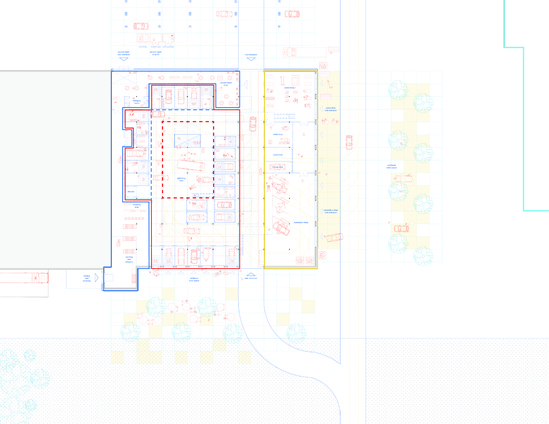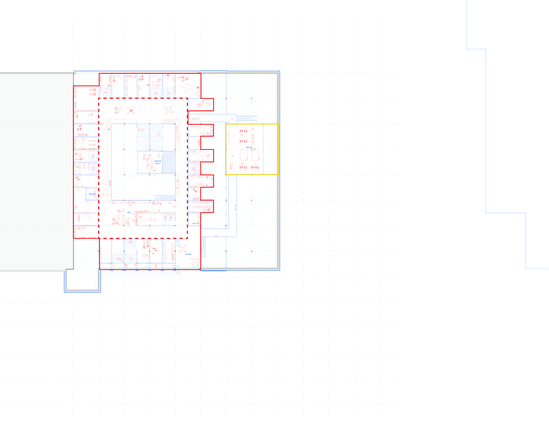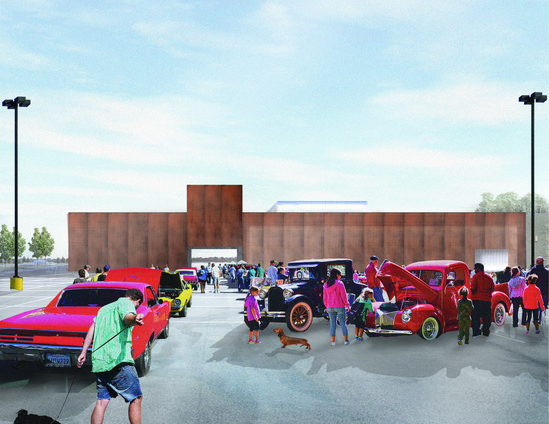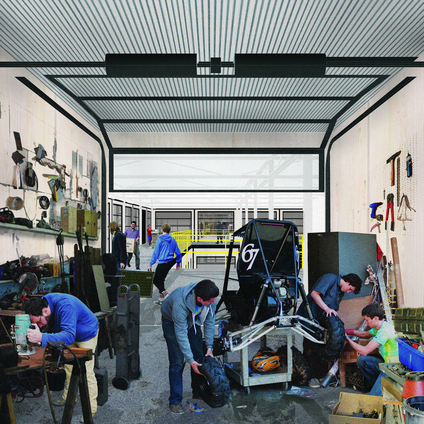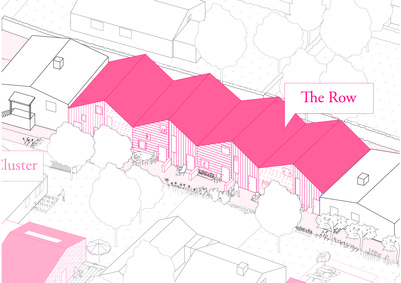Adapting the Box
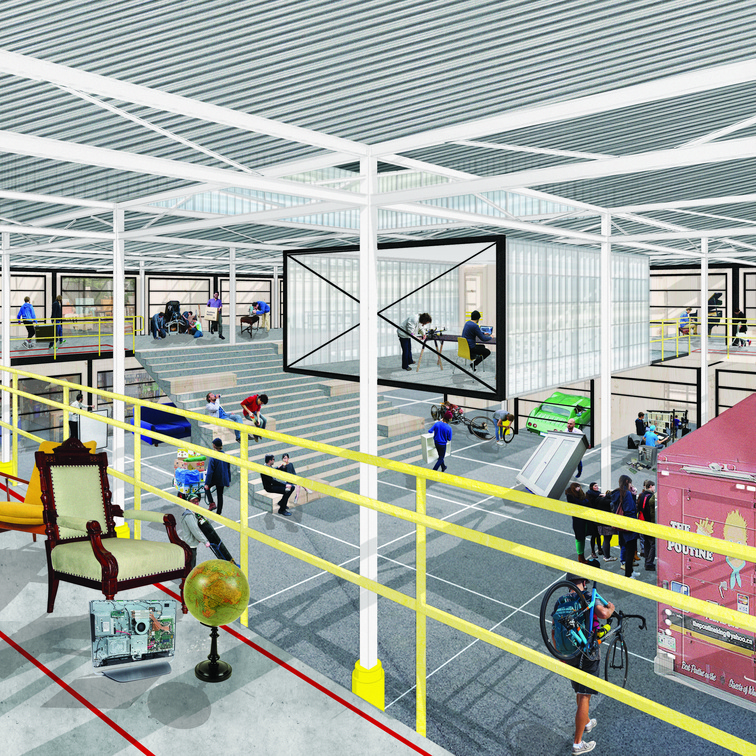
Abstract
Western society is currently engulfed in a post-Fordist movement; instead of needing people to be part of the labour market, it is now considered patriotic to brand one’s lifestyle and social status through material possessions to contribute to the society via the market.
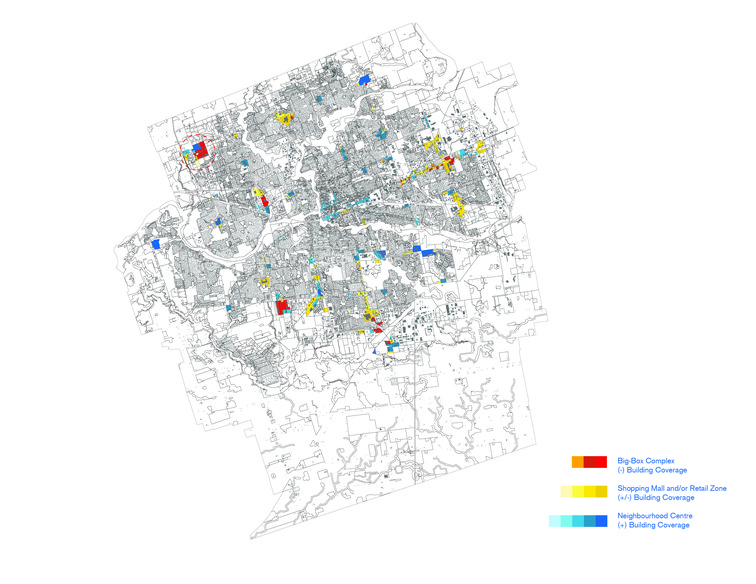
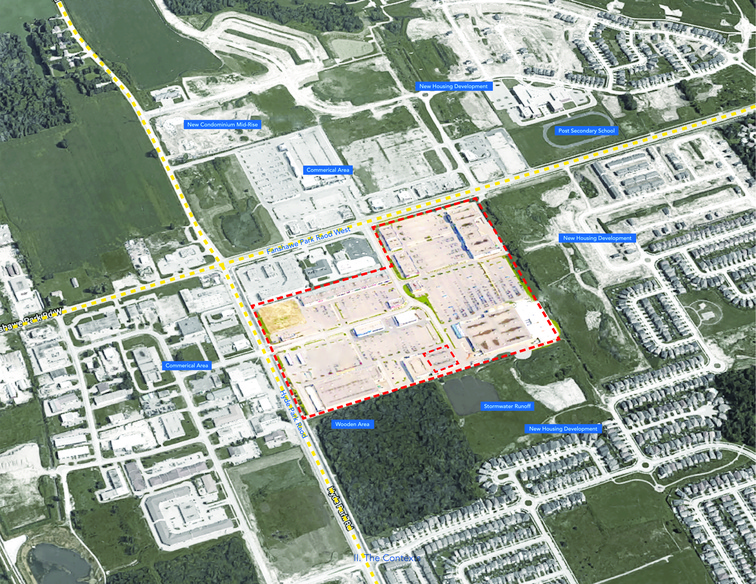

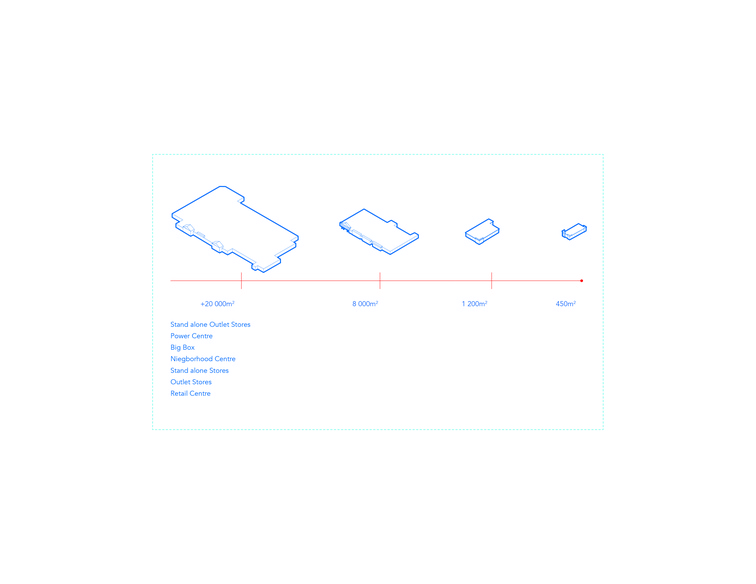
As a result of this movement, the North American Dream house has become cluttered with consumed goods. The average Canadian house size has doubled since 1971 to accommodate our consumption. The development of suburbia has been fueled by the post-Fordist movement of the Baby Boomer generation. With the residential zone, there also came compartmentalization retail zones known as the power centres or retail parks. Power centres contain many warehouse-size big-boxes or megastores to offer competitive prices to customers. Canada, being the second largest country in land mass with a low density of four people per square kilometre, has no shortage of land. The big-boxes profit from the ample supply of land and have thus saturated the market. As the Canadian dollar continues to recover from the 2008 crash, the market is oversaturated with the production of complexes and many retail companies have closed store locations. Canadian society has consumed a greater amount in retail spaces than it can sustain.
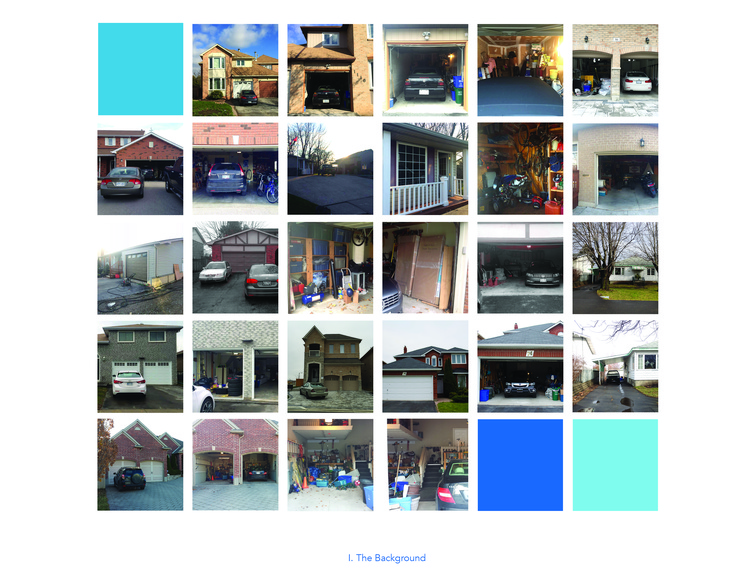
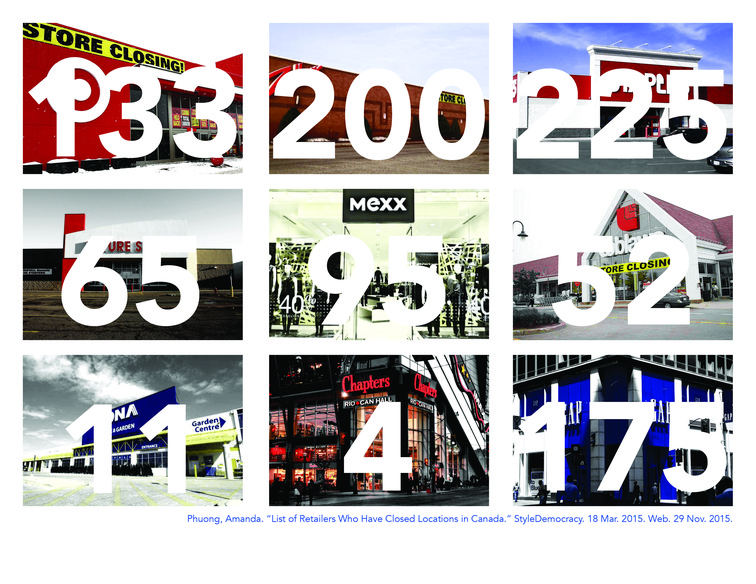
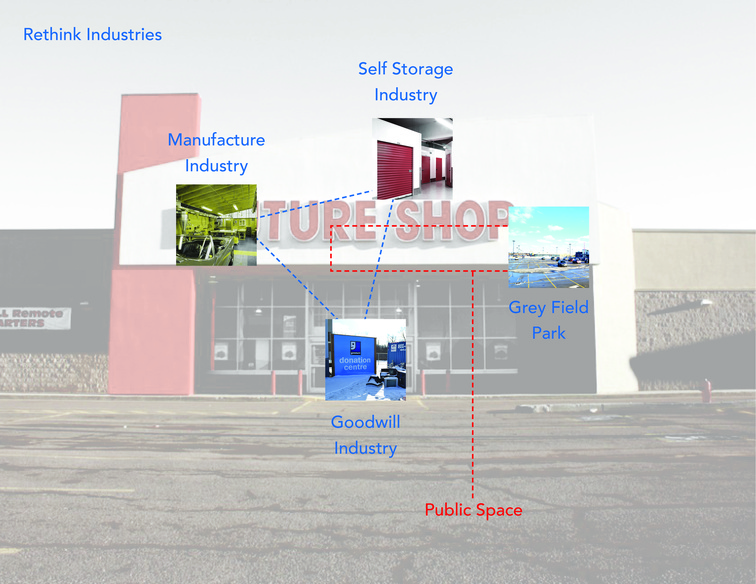
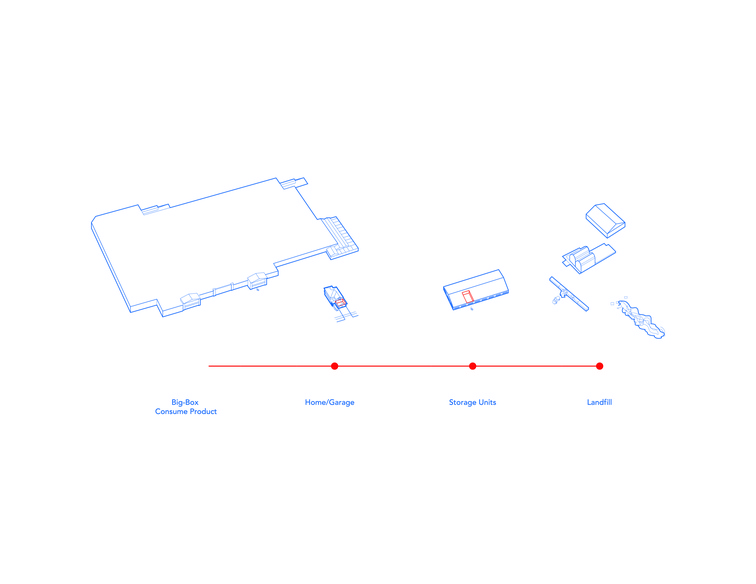

This thesis will re-evaluate abandoned megastores as a potential alternative way of storing unnecessary consumed products of the suburban family. My research will explore the development of the megastore and Self Storage industries in London, Ontario, Canada in order to reimagine these vacant spaces as alternative forms of public space for the post-Fordist society. Concurrently, this will propose an alternative option for storing the by-product of the post-fordist movement with the hope of liberating suburbia from a cluttered lifestyle and offering new opportunities for misused space.
